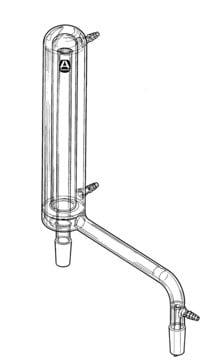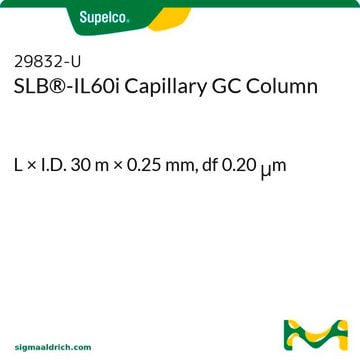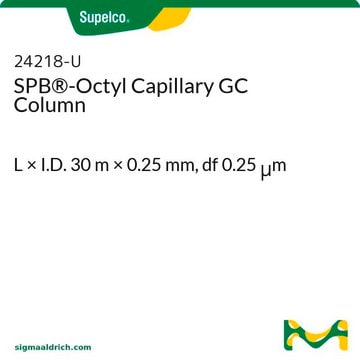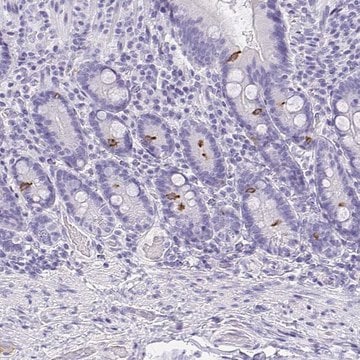24233-U
SPB®-Octyl
L × I.D. 60 m × 0.25 mm, df 1.00 μm
About This Item
Produits recommandés
Matériaux
fused silica
Agence
EPA 1668
suitable for EPA 1613
Paramètres
-60-280 °C temperature (isothermal or programmed)
Valeur bêta
63
df
1.00 μm
Technique(s)
gas chromatography (GC): suitable
L × D.I.
60 m × 0.25 mm
Groupe de la matrice active
Bonded; poly(50% n-octyl/50% methyl siloxane) phase
Application(s)
environmental
food and beverages
Type de colonne
capillary non-polar
Vous recherchez des produits similaires ? Visite Guide de comparaison des produits
Catégories apparentées
Description générale
USP Code: None
Phase:
- Bonded
- Poly(50% n-octyl/50% methyl siloxane)
- ≤0.32 mm I.D.: -60 °C to 280 °C (isothermal or programmed)
- ≥0.53 mm I.D.: -60 °C to 260 °C (isothermal or programmed)
Application
Autres remarques
Informations légales
Faites votre choix parmi les versions les plus récentes :
Déjà en possession de ce produit ?
Retrouvez la documentation relative aux produits que vous avez récemment achetés dans la Bibliothèque de documents.
Contenu apparenté
This page is intended to make it easier to find the consumables you need based on the analytical method you’re using. Methods included on this page come from the EPA, Standard Methods and ASTM.
This page is intended to make it easier to find the consumables you need based on the analytical method you’re using. Methods included on this page come from the EPA, Standard Methods and ASTM.
This page is intended to make it easier to find the consumables you need based on the analytical method you’re using. Methods included on this page come from the EPA, Standard Methods and ASTM.
This page is intended to make it easier to find the consumables you need based on the analytical method you’re using. Methods included on this page come from the EPA, Standard Methods and ASTM.
Notre équipe de scientifiques dispose d'une expérience dans tous les secteurs de la recherche, notamment en sciences de la vie, science des matériaux, synthèse chimique, chromatographie, analyse et dans de nombreux autres domaines..
Contacter notre Service technique








